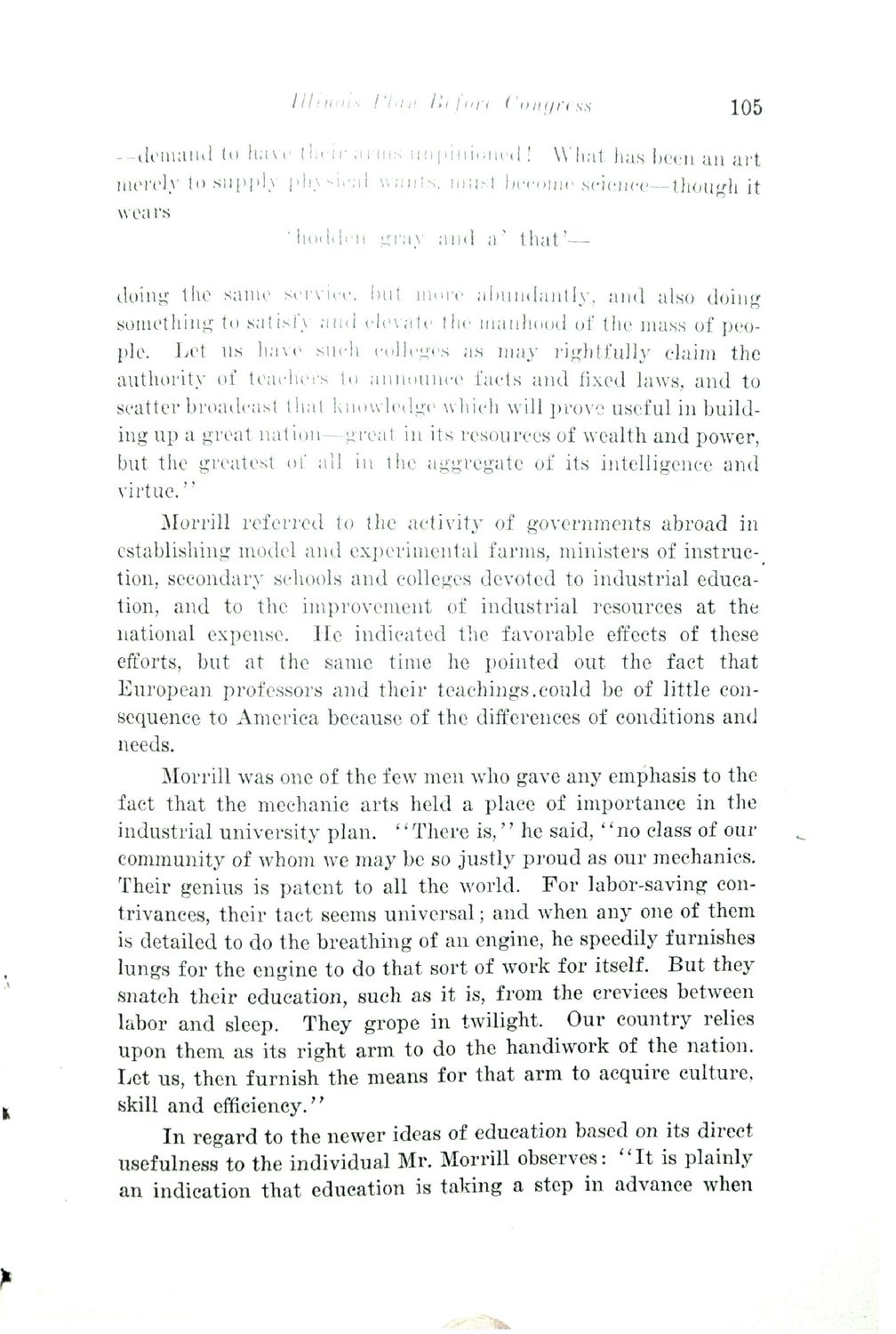| |
| |
Caption: Book - History of the University (Powell)
This is a reduced-resolution page image for fast online browsing.

EXTRACTED TEXT FROM PAGE:
Illinois Plan Before Congress 106 —demand to have their arms unpinioned! What has been an art merely to supply physical wants, must become science—though it wears fhodden gray and a* that*— doing the same service, but more abundantly, and also doing something to satisfy and elevate the manhood of the mass of people. Let us have such colleges as may rightfully claim the authority of teachers to announce facts and fixed laws, and to scatter broadcast that knowledge which will prove useful in building up a great nation—great in its resources of wealth and power, but the greatest of all in the aggregate of its intelligence and virtue/' Morrill referred to the activity of governments abroad in establishing model and experimental farms, ministers of instruction, secondary schools and colleges devoted to industrial education, and to the improvement of industrial resources at the national expense. He indicated the favorable effects of these efforts, but at the same time he pointed out the fact that European professors and their teachings.could be of little consequence to America because of the differences of conditions and needs. Morrill was one of the few men who gave any emphasis to the fact that the mechanic arts held a place of importance in the industrial university plan. "There i s , " he said, " n o class of our community of whom we may be so justly proud as our mechanics. Their genius is patent to all the world. For labor-saving contrivances, their tact seems universal; and when any one of them is detailed to do the breathing of an engine, he speedily furnishes lungs for the engine to do that sort of work for itself. But they snatch their education, such as it is, from the crevices between labor and sleep. They grope in twilight. Our country relies upon them as its right arm to do the handiwork of the nation. Let us, then furnish the means for that arm to acquire culture, skill and efficiency." In regard to the newer ideas of education based on its direct usefulness to the individual Mr. Morrill observes: " I t is plainly an indication that education is taking a step in advance when
| |